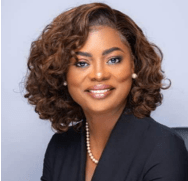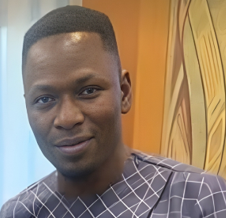If there has been any time in the history of the fourth republic – i.e. since 1992 – when administration of the country could be classified as being difficult, then it is none other than the second term of President Nana Addo Dankwa Akufo-Addo.
Perhaps if the situation was this clear to former President John Dramani Mahama earlier, he may have opted not to bother challenging the election results at the supreme court – as whoever is upheld as winner of the 2020 general election by the court will be up the creek without a paddle. It seems that this reality dawned on the president during his inauguration for a second term when his disposition showed someone who was clearly unhappy – especially, when compared to his countenance on January 7, 2017 when he was beaming with smiles and joy.
Shadows of what lies ahead began to manifest in 2020 – when the coronavirus pandemic eroded all gains the economy had made in the last three years under the watch of President Akufo-Addo. For example, from 2017 to 2019 the economy grew at an average 6.9 percent compared to the 2.5 percent average recorded in 2014 to 2016.
But today, for the first time in 37 years, the country’s economy has recorded a recession as it contracted by 3.2 percent and 1.1 percent consecutively for the second and third quarters of 2020 respectively. The last time the economy experienced a contraction was the infamous 1983 slump that was characterised by hunger, economic unrest and political tension.
Bringing the economy back to a path of growth is not the only daunting task for the president. In fact, a much more challenging assignment requires his serious attention; that is, the debt situation. The country’s public debt has hit what economists call unsustainable levels, hitting 71 percent as of September 2020 and further expected to end the year at 77 percent, according to IMF projections.
This is a cause of worry for any president managing a country like Ghana, which has a struggle with even raising enough revenue to take care of statutory needs.
International rating agency Moody’s has downgraded the economy’s outlook to B3 Negative over the mounting debt situation, and further states that the deplorable fiscal situation compares to that of a Highly Indebted Poor Country’s (HIPC) economy.
Budget deficit is also expected to widen to 11.4 percent at end of the year from a projected 4.7 percent, whereas total revenue and grants have been revised to 13.9 percent of GDP in 2020; representing a 20-percentage points decrease over the original 2020 budget target.
The Moody’s report says interest expenditures on the debt are set to rise to 6.8 percent of GDP, up from 5.4 percent of GDP in the budget; thereby consuming close to 50 percent of total revenue. The rating agency further warns that further weakening in debt affordability amid persisting refinancing risks would indicate a fundamental deterioration in government’s debt-service capacity, resulting in another downgrade at the next rating.
Yes, the figures don’t look good, and former Finance Minister Seth Terkper has warned of a year of austerity – which essentially means that government will limit spending and operate a very tight budget.
Aside from the ballooning public debt, there exists another condition that has never been witnessed in the history of this country – a hung parliament. Since 1992 the norm has always been that the ruling government has a clear majority in parliament, making it easy to have its policies rubber-stamped by members in the House.
Interestingly, this is not the setting for the president’s second term as both the ruling New Patriotic Party (NPP) and opposition National Democratic Congress (NDC) have an equal number of seats in parliament – with one independent who is a progeny of the ruling party.
What’s more, the leader of the House – the Speaker – is the longest-serving member of parliament and from the opposition NDC. This in itself creates a very uncomfortable atmosphere for the president, as he will no longer have the leeway of getting every single policy or bill through parliament without any hindrance. That era has gone, and it is the first time any president has ever experienced this situation.
Now, the president has no option than to ‘pamper’ or ‘beg’ the opposition’s members of parliament when he wants to push an agenda through the House – or else he will have it thrown out or have to go through a series of frustrations before it is approved.
Well, President Akufo-Addo has assured that he will build consensus with the new parliament to ensure the country’s interests are not derailed. And again, he has long said that he has what it takes to bring a dead economy back to life: touting his achievements in his first three years of steering the nation’s affairs. Whatever the case, the figures and prevailing situation in parliament are indicative of a very tough year, and all eyes are set on him to do some magic to turn things around.










